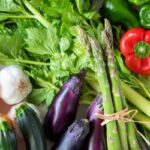
In 2025, major amendments to food labelling standards were implemented in Singapore and China. I would like to take a broader look at the latest trends in regulatory changes across various countries around the world.
The U.S.
On April 7, 2025, the U.S. Alcohol and Tobacco Tax and Trade Bureau (TTB) announced an extension of the public comment period for its proposed amendments to labelling standards for alcoholic beverages.
The proposed amendments involve the mandatory labelling of alcohol information (alcohol content per serving, calorie, and nutrient content) and allergen information on alcohol beverages.
On April 18, the U.S. Food Safety and Inspection Service (FSIS) announced it will update allergen related programs and documents in response to the Food and Drug Administration’s (FDA) recently updated Guidance for Industry (Questions and Answers Regarding Food Allergen Labelling (Edition 5) January 2025). The updates include removing coconut from the list of “tree nuts” that must follow food allergen labelling requirements.
Additionally, FDA announced it would extend the comment period for the proposed rule on a front-of-package (FOP) nutrition labelling scheme.
South Korea
On April 21, 2025, the Ministry of Food and Drug Safety (MFDS) announced a partial amendment to the Food Labelling Standards.
The main points are as follows:
-If export products, initially labelled in a foreign language, cannot be exported for various reasons but comply with Korea’s domestic food standards, Korean labelling using stickers or other methods might be permitted only in specific cases, such as when they are not intended for direct consumer sales in Korea).
– Expansion of mandatory nutrition labelling Additionally, public comments were sought for the proposed amendment to the Enforcement Rule of the Act on Labelling and Advertising of Food, etc. from January to February 2025. The primary focus of this amendment proposal is on digital labelling (ingredient names, product report numbers).
Thailand
On March 7, 2025, the Thai Food and Drug Administration (Thai FDA) called for public comments on the Draft Regulation on Nutrition Labelling.
The draft includes amendments to certain nutrition labelling requirements and standards for labelling energy, sugar, fat, and sodium in the GDA (Guideline Daily Amount) format. The proposed amendments primarily aim to ease the strict requirements regarding the “colors” to be used for GDA labellings (such as text color and background color).
On May 6, 2025, the Thai FDA also issued two notifications (Ministry of Public Health Notification No. 456 and No. 457) that abolished seven individual labelling standards including for brown rice flour and jelly, and prohibited the manufacture, import, and distribution of certain foods such as konjac mini cup jelly and similar products.
Australia
On April 7, 2025, Food Standards Australia New Zealand (FSANZ) announced the approval of the following three amendments to the Australia New Zealand Food Standards Code. (1. Cultured Quail as a Novel Food 2. Carbohydrate and sugar claims on alcoholic beverages 3. Energy labelling on alcoholic beverages)
In Singapore, the new requirements for gluten-free labelling were introduced to Food Regulations (see our past article). Other changes have also been made, including amendments to the rules on the labelling of ingredient names (Regulation 5, Paragraph 4).
Regarding China’s GB7718-2025 and GB28050-2025 (see our past article), many amendments have been introduced, such as the mandatory labelling of allergens, the addition of ingredients to the mandatory nutrients content labelling, and the prohibition of the use of certain terms such as “不添加(En: not added)”, “不使用(En: not used)”and their synonyms.
As a conclusion, we would like to remind you that it is advisable to stay informed about the regulatory changes in these countries, as well as the amendment trends in Japan’s Food Labelling Standards (see our past articles here and here).
Share/Like/Follow:
Newsletter Signup
We issue monthly e-newsletters, which provide you with the latest updates on food labeling/regulations in Japan.
If you want to make sure to not miss any issue, please click below.
Related Service
Research Services on Ingredients & Food Labeling -For the Japanese Market-
We verify the conformity of ingredients and additives with the standards for use in Japan based on specifications such as formulation lists. We also verify the conformity of the proposed labeling of ingredient names, nutrients, etc. with the labeling standards based on specifications such as formulation lists.

Label bank Co., Ltd. CEO (Founder)
Born in Japan. Working on solving various issues related to food labeling operations. Also regularly gives lectures for various organizations in Japan.
Co-author of ‘Latest edition: Guide book Food Labeling Law and related business practical points – from scratch (Japanese version only)’ (DAI-ICHI HOKI CO., LTD/2019).






